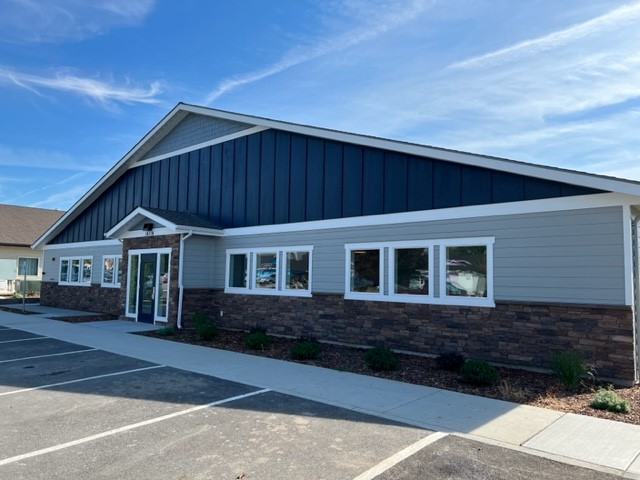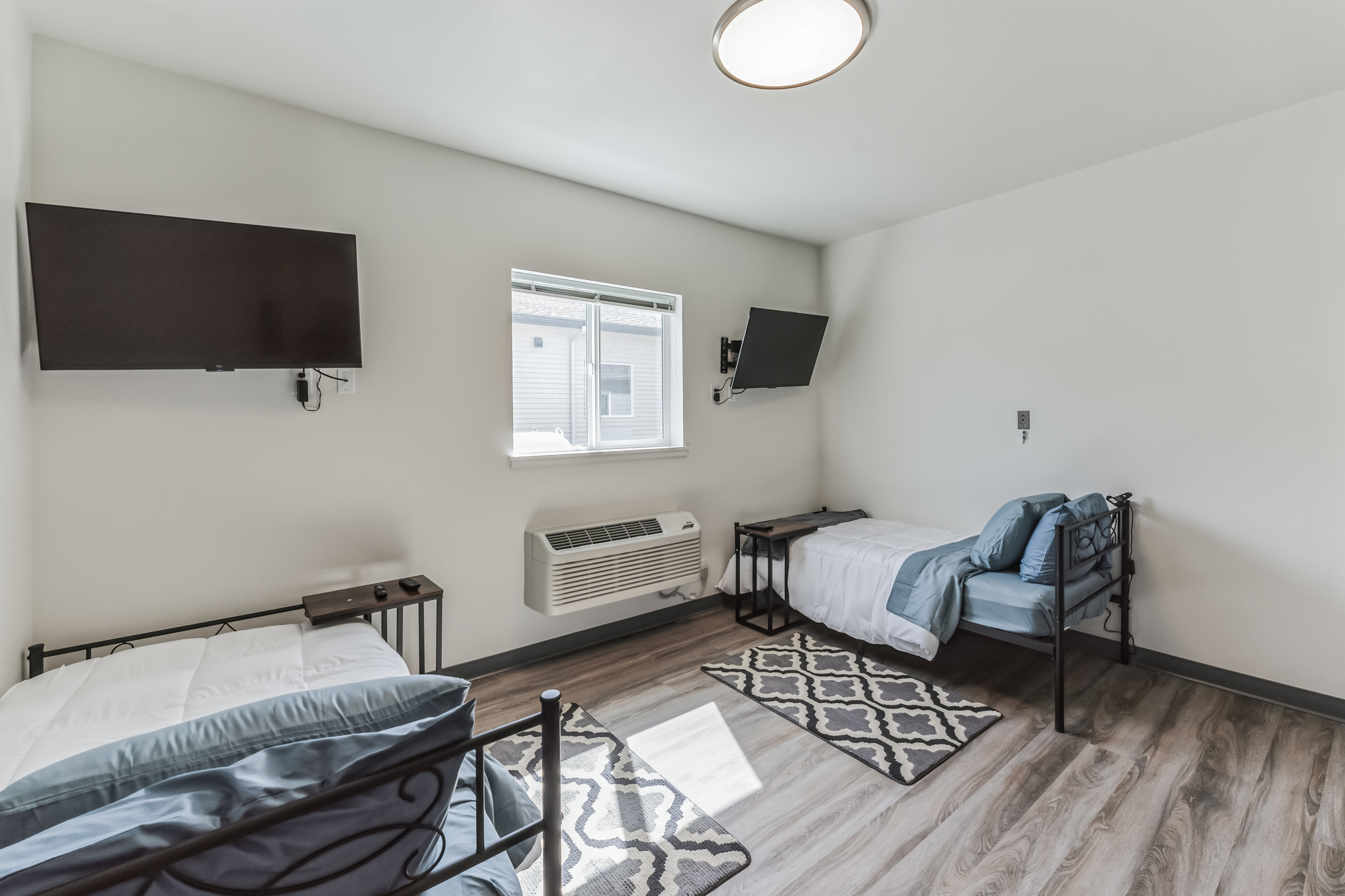
If you’re carrying a weight that feels heavier than it should, those relentless worries that creep in during quiet moments or explode in social situations, leaving you breathless and drained. Anxiety is not a transient state of nervousness before an important engagement.
It interferes with your sleep, it ruins your relationships and even simple pleasures seem impossible to you. But you are not alone, and getting diagnosed is not as daunting as it seems. As someone who walks alongside folks just like you at We Level Up Washington, I want to guide you through this process with the warmth and clarity your anxiety treatment deserves.
Skip To
Table of Contents
Why a Diagnosis Changes Everything for Your Peace of Mind
A diagnosis isn’t just a label, it’s like flipping on a light in a dark room. It helps you see clearly whether everyday nerves have turned into something more, like an anxiety disorder that sneaks into your work, your relationships or even your sleep.
Doctors and therapists use tools like the DSM-5, a trusted guide from mental health experts, to figure this out. Once you know what is going on, you unlock doors to treatments that actually work, such as talk therapy or simple daily habits that build calm. Without it, you might spin your wheels, trying quick fixes that don’t stick. You gain hope and a plan tailored just for you. If this sounds like your story, keep reading, we’ll make the path ahead feel less scary.

End the Emotional Pain. Get Your Life Back.
Feeling Depressed, Anxious or Struggling with Mental Health Illness? Get Safe Comfortable Mental Health Dual Diagnosis High-Quality Therapy From Counselors That Care. Begin Your Recovery Now.
Hotline: (509) 348-4077

Spotting the Signs: Do These Feelings Sound Familiar?
Anxiety doesn’t shout; it whispers at first, then builds until it colors everything you do. You might notice it in little ways, like your heart pounding before a phone call or your mind replaying what if late into the night. These signs often linger for weeks or months, making simple tasks feel overwhelming.
Think about your own days: Do worries about work or family stick around longer than they should? Or maybe your body joins in, with sweaty palms or a tight stomach that won’t ease up. Spotting these early lets you act sooner, turning vague unease into steps toward healing.
- Persistent fears that pop up without a clear reason and won’t fade away.
- Trouble focusing on tasks because your thoughts race ahead to worst-case scenarios.
- Physical clues like shaky hands, quick breaths, or feeling on edge all the time.
- Pulling back from friends or fun plans because social situations feel too much.
If these ring true, you’re already tuning in to your needs. A mental health treatment can help sort if it’s anxiety or something else mimicking it, like low energy from poor sleep.
Get Help. Get Better. Get Your Life Back.
Searching for Accredited Dual Diagnosis Mental Health Centers Near You?
Even if therapy failed previously, or are in the middle of a difficult crisis, we stand ready to support you. Our trusted behavioral health specialists will not give up on you. When you feel ready or just want someone to speak to about counseling alternatives to change your life call us. Even if we cannot assist you, we will lead you to wherever you can get support. There is no obligation. Call our hotline today.
FREE 24/7 Dual Diagnosis Mental Health Services HotlineExploring Types of Anxiety: Which One Might Fit Your Experience?
Anxiety shows up in different outfits, each with its own quirks, but they all steal your ease if left unchecked. Understanding the types helps you feel less lost and more ready to name what you’re facing. For instance, some folks battle constant hums of concern, while others face sharp spikes in crowded rooms.
Let’s break down a few common ones in plain terms. Remember, these aren’t boxes to trap you in—they’re starting points for getting the right support.
Generalized Anxiety Disorder: The Everyday Worrier
Generalized Anxiety Disorder involves excessive worry about everyday matters, like finances or health, that feels uncontrollable and disproportionate. You might notice restlessness, muscle tension or fatigue creeping in, making even simple decisions feel overwhelming. If your mind races ahead to what-ifs for hours on end, GAD could be at play.
Panic Disorder: When Fear Hits Like a Storm
These panic attacks can happen anytime, leaving you drained and watchful. They often link to deeper fears, but learning to ride them out through therapy rebuilds your steady ground.
Social Anxiety Disorder: Navigating Crowds and Connections
Social situations turn into spotlights where every word feels judged, so you skip gatherings or meetings. This isn’t shyness; it’s a deep dread that freezes you up. Tools like gradual exposure in sessions help folks reclaim joy in chats and events, one small win at a time.
Other Forms: Phobias and Beyond
Specific phobias zero in on things like heights or spiders, sparking avoidance that limits your world. Conditions like PTSD from tough past events can weave anxiety in too.
Knowing your type isn’t about labeling—it’s about grabbing the right lifeline. Which one tugs at your heart?

Comfortable Facilities & Amenities
High-Quality Mental Health Services & Behaviroal Health Substance Abuse Treatment
Rehab Centers TourRenowned Mental Health Centers. Serene Private Facilities. Inpatient Rehab Programs Vary.
Mental Health Helpline: (509) 348-4077Proven recovery success experience, backed by a Team w/ History of:
15+
Years of Unified Experience
100s
5-Star Reviews Across Our Centers
10K
Recovery Success Stories Across Our Network
- Low Patient to Therapist Ratio
- Comprehensive Dual-Diagnosis Treatment
- Complimentary Family & Alumni Programs
- Coaching, Recovery & Development Events
- Comfortable Onsite Medical Detox Center
Step by Step: How to Get Diagnosed with Anxiety Without the Overwhelm
Wondering how do you get diagnosed with anxiety? The process feels like a friendly chat more than a test, designed to listen to your story and light the way forward. You don’t need to prepare a speech; just show up as you are. Most folks wrap it up in one or two visits, gaining tools to breathe easier right away.
Step 1: Pick a Trusted Guide to Start Your Journey
Reach out to a family doctor first, they’ll check basics and point you to a therapist or psychiatrist if needed. Or skip straight to a mental health specialist who knows anxiety inside out. Apps and directories make finding a local and welcoming place simple. At We Level Up Washington, options abound for that personal touch.
Step 2: Open Up About What You’re Carrying
Sit down and share the real stuff: When did the worries start? How do they sneak into your days? Be honest, even if tears come, it’s safe space. Pros ask gentle questions and might hand you a quick quiz to map your feelings. This builds trust and paints a full picture.
Step 3: Layer in Checks for the Whole You
Expect a quick physical once-over to rule out things like hormone shifts that copy anxiety vibes. Blood work or chats about meds ensure nothing physical hides underneath. It’s thorough but kind, like a teammate scanning for hidden hurdles.
Step 4: Walk Away with Your Custom Roadmap
Your guide reviews it all, shares the insights, and crafts a plan that matches your life, maybe weekly talks, meds if they fit or tips for quieter evenings. Follow-up keeps it flexible as you grow.
Why Lean on Pros? Your Best Shot at Lasting Calm
Deep breaths or apps offer quick pauses, but they shine brightest alongside expert eyes. Anxiety mimics other blues, like heart flutters from caffeine overload, so missing the root keeps you circling. Pros bring proven paths, backed by years of listening and tweaking what works.
They spot patterns you might gloss over, weaving in family history or daily rhythms for a fuller fix. Think of it as upgrading from a band-aid to a bridge—stronger, surer steps toward days that feel like yours again.
FAQs About Getting Diagnosed with Anxiety
-
Where in Coeur d’Alene, Idaho, can you find treatment for anxiety?
While Coeur d’Alene features solid local counseling options, We Level Up Washington supports residents with telehealth sessions and referrals. Our Spokane Valley programs extend virtually, ensuring seamless access to diagnosis and therapy without the commute.
-
Where in Cheney, Washington, can you find treatment for anxiety?
Cheney-area folks can access initial care through community providers, but for advanced anxiety diagnosis and integrated treatment, turn to We Level Up Washington.
-
How long does it typically take to get diagnosed with anxiety?
Most folks complete the process in one to three sessions, depending on your story depth. We prioritize thoroughness without rushing, ensuring accuracy from the start.
-
Can anxiety be managed with short-term treatment options?
Many see shifts in weeks through focused cognitive behavioral therapy or lifestyle tweaks.
-
What if anxiety stems from an underlying medical issue?
Our assessments include physical exams and labs to uncover links, like thyroid concerns, then address both body and mind for fuller healing.
-
Is medication always part of anxiety treatment?
Not at all; we tailor plans, starting with therapy or groups for many. Meds enter if they align with your goals, always under close guidance.
-
How do I know if it’s anxiety or just stress?
Stress ebbs with circumstances, while anxiety persists excessively, impairing daily flow. A professionals evaluation distinguishes them clearly.
-
Can joining a support group help during diagnosis?
Yes, it builds community early, reducing isolation as you await results. Many find validation in shared experiences that therapy complements.
-
What role does family history play in anxiety diagnosis?
It guides us—genetic ties raise flags, but environment matters too. Sharing this helps craft preventive strategies for you and your loved ones.
-
Are online assessments reliable for anxiety?
They offer starters but lack the nuance of in-person evals. We recommend professional consultations for true depth and safety.
World-class, Accredited, 5-Star Reviewed, Effective Mental Health Dual Diagnosis Programs. Complete Integrated Inpatient Rehab with Free Post Discharge Therapy Planning.
Hotline: (509) 348-4077End the Emotional Pain Rollercoaster. Gain Stability & Happiness Through Recovery Treatment. Start Mental Health Counseling Today. Get Free No-obligation Guidance by Behaviroal Health Specialists Who Understand Mental Health Recovery.
If your anxiety has been holding you back and you’re ready for real relief, reach out today. Call We Level Up Washington at (509) 348-4077 and speak with a compassionate specialist who can guide you toward clarity, diagnosis, and calm. Your path to steady, grounded peace can start right now




